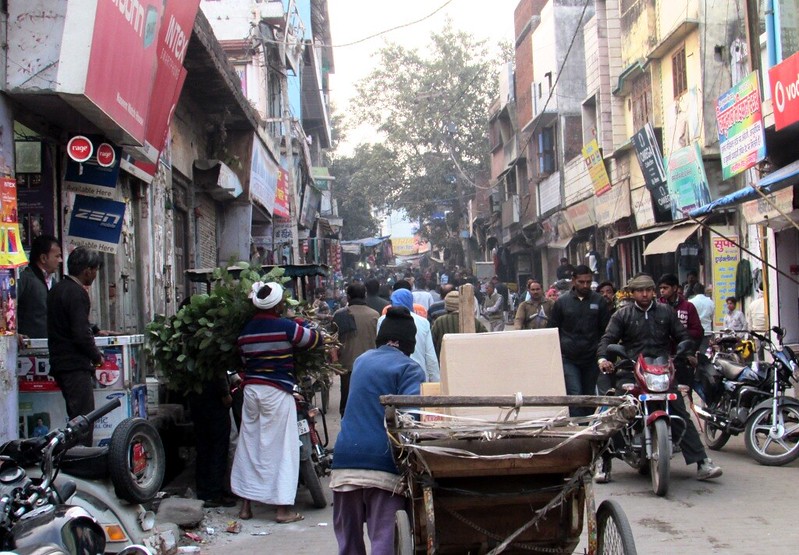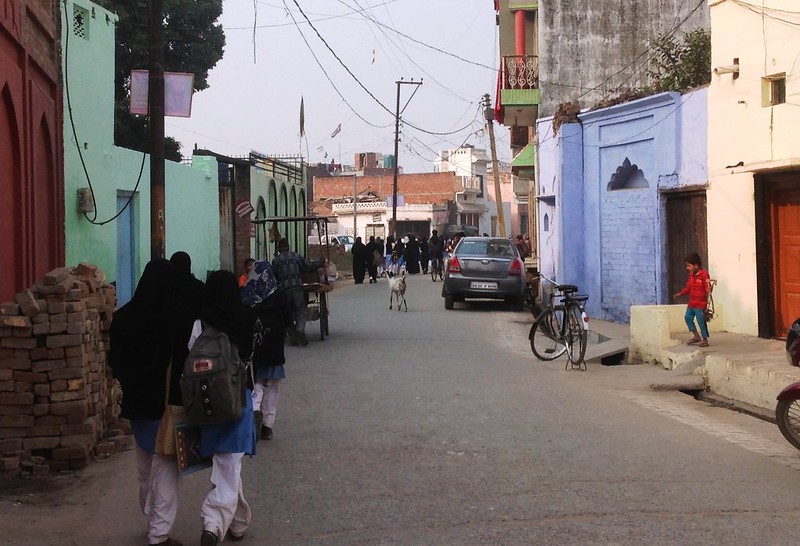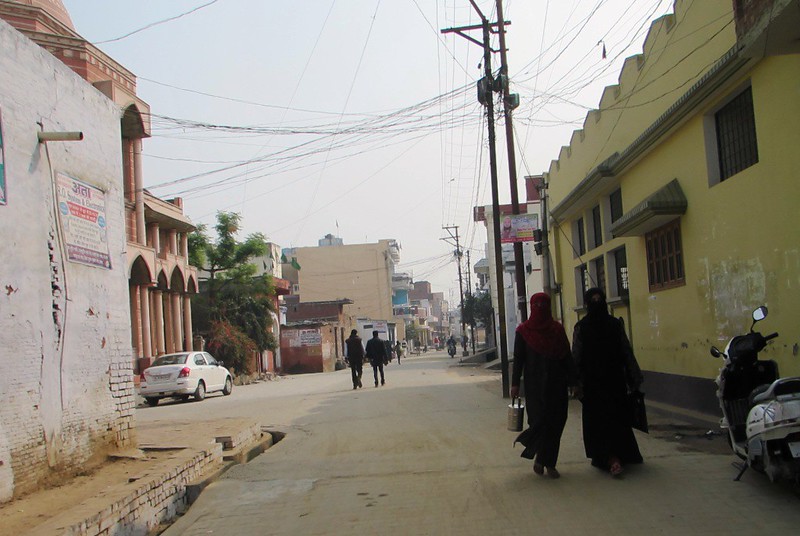By Amit Kumar, Twocircles.net
Sambhal, Uttar Pradesh :The residents of Deepa Sarai, Sambhal, Uttar Pradesh, claim to have descended from Turkish people who arrived in medieval India. But the ones we talked to could not exactly tell us the story behind the name of the area, which is one among 50 or more Sarais in Sambhal. The residents of Deepa Sarai, do know, however, that they are pretty sure they do not like the present name of the area: a terror hub. Deepa Sarai is now being looked at suspiciously by the whole country, after its association with two people arrested for allegedly having connections with Al-Qaeda.
Not Indian Mujahideen, not Lashkar-e-Taiba, but the big daddy of all: Al-Qaeda. For the special cell and the Intelligence Bureau, this is being seen a major breakthrough into the network of the world’s most feared-at least before ISIS-terrorist organisation. The locals are stunned, confused, angry, and cautious: the incident has left the people unsure what lies ahead for the 60,000 strong population of the neighbourhood. The locals are nevertheless, done with the attention that the place is getting. Almost everyone in the area had seen journalists from across publications and channels throng to the area, looking for ‘news’.
For families of arrested, the future seems dark
The hardest hit, of course, have been the families of the accused. Mohammed Sadiq is a man in his 40s, and works as a ladies tailor. The upcoming days were supposed to bring some good business for him: the new year, weddings in the area were to be his ‘acche din’. Except that for the past week or so, he has little sense of how, and why, their lives changed forever and instead of fulfilling orders, he is now returning the clothes since he cannot work.
Even before I ask him a question, it seems his answers were ready: his brother, and one of the accused, Mohammed Asif, a small-time businessman, arrested in Seelampur, Delhi while he was on his weekly visit to the capital, is innocent. But even saying this takes its toll on Sadiq. For the past few days, he has lost count of how many journalists have asked him the same, seemingly pointless, questions: Is your brother a terrorist? Did he really work for Al-Qaeda? How come you had no clue? Who were his accomplices? What will you do now? “He has been arrested, yes, but how has the media already confirmed that he is a terrorist? Have people not been arrested on false charges before? Do you expect us to believe that our brother, who was a soft-spoken person, loved by people around him, and someone who barely made ends meet was an Al-Qaeda guy…Media ne is tarah se bana ke khada kar diya hai jaise Osama mara nahi, Sambhal mein zinda hai…” Sadiq says, tearing up. “My dad cannot speak to you: he has had too many visitors questioning him about his son. He is an old person, and a heart patient, so please excuse him,” he says, almost apologetically. In the next couple of hours, he was to leave with Asif’s wife and kids to meet Asif in Delhi. “She (Asif’s wife) spoke to him on phone; he said he was okay and asked him to come to Delhi with me and the kids,” he added. For the time being, he and his family are at sea; thinking of where to arrange the money for a lawyer and the long road to justice.
The family of Zafar Masood, alias Guddu, the other accused and arrested for connections with Al-Qaeda, had had enough of the media. Masood had previously been arrested in 2002 on account of terror charges, before being acquitted in 2008. Since then, he had been in Sambhal, say the locals. Masood was arrested from Moradabad while he was on his way back home from a wedding and was with his wife and daughters. He is alleged to be Al-Qaeda’s financier in India. His wife, inconsolable since his arrest, declined an interview.
Security beefed up, but not sure what to look for
The local police have been in news too, but a five-minute conversation shows that they know little of the arrests. “These men were not picked by us and we had no clue about these people,” says Aditya Singh, a police official. Did they have a record on these guys? “No,” says Singh. Beyond that, they know nothing. All they were tasked with was to patrol the streets, and check people who were entering the area after midnight. “They did it for a few days, but now it seems they are also bored, for they found nothing,” says a local. The police also do not know, after all, what to look for.
A deeply ‘conservative’ place?
Deepa Sarai is not a poor locality by any stretch of imagination: the roads are paved, there is electricity, and almost all houses are pucca. Sambhal has also produced doctors, engineers, professors, etc. The area has a number of big and small English-medium schools. Most of the men are engaged in either transport businesses, or work as labourers in small factories around the district. In fact, the earlier trend of going to Gulf to earn money has been on a wane. An uptick in local economy, along with a fall in Gulf currency values have resulted in fewer people going to the Gulf. “The only people who go to Gulf are professionals, who are sure of earning a handsome salary,” says a local. Asif too worked in Saudi Arabia for about 15 months between 2013 and 2014 as a labourer. However, his family said he had been conned by the agent, and since he was making only Rs 11,000 a month, he decided to come back.
At the same, Deepa Sarai has all the hallmarks to send ‘sensational’ news-seeking reporters in a dizzy. The lanes, long, narrow, and chaotic, almost always open up either to a mosque, or a madrassa. Almost all the women were in veils, so were all the girls (and almost all girls in this area attend schools) attending the schools and madrassas. Asif’s dire financial condition led him to cancel his son’s schooling, but he nevertheless kept his seven-year-old daughter in school. The skyline is dotted with minarets. Two days before Eid-Milad-ul-Nabi, almost all the houses had Islamic flags hoisted on their roof; flags that a number of people continue to confuse with its Pakistani counterpart. In short, for people who come ‘looking’ for terrorists, the signs are all there.
For the locals, however, this is how the area has always been: a deeply religious place. “There are more than 50 madrassas in Sambhal, and almost all have students from the local areas or other areas from UP. There are few students from outside the state,” says Faisal, a caretaker of one madrassas. He ensured that we do not get to meet the students, his point being that there was no way we could have talked to the children without the teachers around. He had seen enough media in the past few days, and did not want the children to bear the same. It would not be wrong to think that Sambhal too, wants to go back to its old life. The future may have a different course, however.




